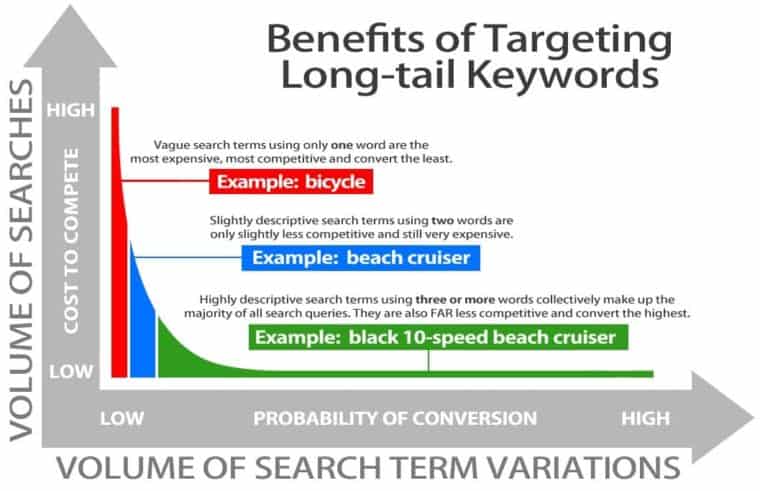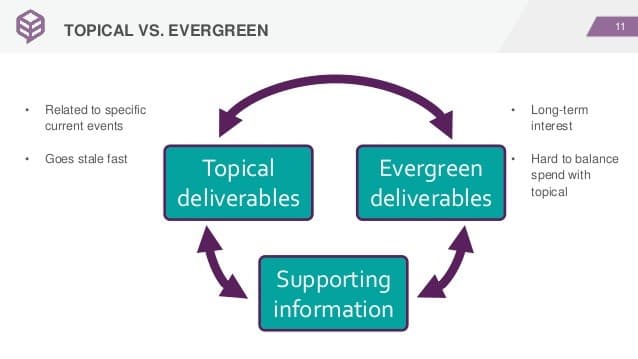Tips for Business Owners Who Are Unsure as To What to Write About
Over time, business owners may struggle to identify new ideas to write about, which hinders writing productivity. Here are several tips the owner of any business, regardless of size or how long the established blog has existed, can identify new topics to write about.

Blogging provides a number of valuable opportunities for businesses. Continually posting content to a website blog ensures search engines continually crawl the page, which in turn helps boost search engine optimization and the website’s rank. Publishing new content also increases the ways potential clients may find the website. However, over time, business owners may struggle to identify new ideas to write about, which hinders writing productivity. Here are several tips the owner of any business, regardless of size or how long the established blog has existed, can identify new topics to write about.
Get the Best Updates on SaaS, Tech, and AI
Targeted Keyword Search
Every business owner has a general idea as to which keywords describe the products and services the company provides. These are keywords used in advertisements and other marketing material online. The keywords can serve as a starting point for creating new content.
Most breath-through advertising begins with a targeted keyword search and the same holds true for identifying the new posts to create and topics to write about. Writing blog posts in terms of identifying new topics doesn’t differ all too much from other forms of Internet marketing. It’s simply another form of online outreach a business owner needs to take advantage of.

(Source)
By typing the target keywords into a search engine such as Google, Google automatically finishes the phrase and picks out the most popular content using these keywords. If a company sells televisions, Google may bring up the latest news and information about advances in televisions. The same holds true for any kind of target keyword. Additionally, as attention and drive shifts over time, search engines will differ the results based on the same keywords.
By performing a targeted keyword search, it should provide a number of writing ideas and topics to consider.
Recommended Content

(Source)
YouTube provides recommended videos at the conclusion of a recently viewed video. For a company with e-Commerce product videos, it is able to see what YouTube, the world’s second largest search engine (behind Google) recommends viewers of a company’s current videos to watch. This may provide some ideas for a business owner with regards to what they should write about.
YouTube and Google have connected the videos and determined a viewer would likely want to watch the subsequent video. Even if the video doesn’t highlight the exact same product, there are correlations between the product videos of the business and what YouTube decides to show next. The follow-up videos may provide new topic ideas for a business to focus on and write blog posts about.
What’s Worked in the Past?
It’s important to continually monitor previous content and how it has performed on the blog. Some content will perform substantially better than other posts. A business owner needs to monitor this and identify the material with higher performance value. There’s a reason why the content connected to more readers than other posts. While timing and outreach regarding the post do have something to do with it, published articles with higher performing analytical data typically do so because of a connection reader identify.
Once the higher performing posts are identified, it’s necessary to move forward and write similar content. If an article about “Top 10 Social Media Marketing Tips” performed well, a business owner might want to write about the “Top 10 Facebook Marketing Tips,” and so on. Using a similar title while writing about a similar topic may bring about new, highly desirable results.
The new content may not only bring about desirable results, but it provides a business owner with additional posts to measure analytics from. If the Facebook-specific posts perform well, the writer may decide to dive further and publish more content based specifically on Facebook marketing.
Coming up with new content to write about connects directly with what has worked in the past and what has driven the desired results.
Repurpose Old Content
There’s nothing wrong with repurposing old content. A considerable amount of work and research goes into blogging. However, over time some blog posts will begin to fade away and no longer perform as well as it previously did. One of the best ways to rejuvenate the post and to bring in new readers is to repurpose the old content for publication.
A dated blog may use out of context research, or reference technologies no longer relevant. While the bulk of the blog may remain the same, new references and research can go into the post. This freshens up the post and makes it relatable to a modern reader.
Repurposing old content doesn’t take as long as a brand-new post, yet it’s based on previously successful content. The longer a blog exists, the greater the opportunity for creating new posts from old content.

(Source)
What’s Important?
There’s nothing wrong with writing about a newsworthy topic and what’s on the business owner’s mind. Now, in general it’s best to avoid controversial topics within a business blog, unless the company focuses on these kinds of issues (a religious company already has a very specific target audience wanting to read about specific topics, which may already include controversial topics, but in general it’s best to avoid controversy that may alienate some customers).
There are a number of reasons why a business owner should consider writing about these kinds of topics. First, it’s fresh and will receive more immediate views. It’s easily sourced on search engines and members within the key demographic are more likely to search for this kind of topic.
Second, when a business owner writes about a topic important to them, it helps illustrate the more human side of the business. Customers want to interact and shop not just with large corporations, but with humans, they connect with. Writing about these topics illustrates passion large corporations and enterprise businesses may not offer. So, while avoiding controversy is generally a good idea, writing on current topics and topics of passion can help bring in traffic while providing a business owner with a valuable outlet.
Current and Evergreen
Some business owners and bloggers make the mistake of writing just current affairs topics or just evergreen topics. Instead, it’s important to focus on each.
Current topics bring in immediate traffic. Writing about how the latest news affects the particular business (or industry) can prove helpful and is a reason why business owners should check the news often (writing about current topics provides both new ideas while generating interest for the posts within a short amount of time). While gaining immediate visibility brings value, these kinds of posts do not have legs. Traffic quickly dies off. In order to capitalize on the content, a writer or business owner needs evergreen content to subsidize what the current material offers.

(Source)
Evergreen content provides valuable information throughout the year and not just during a set news cycle. It’s about marketing techniques, how to change a flat tire or how to trim a dog’s nails. It’s not dated specifically. This kind of content will not bring in the immediate number of views as current affairs blogs, but it brings in continual views.
A business owner needs to set a foundation of evergreen posts, and then publish current topics from time to time. This way, after a reader takes in the current content, they will have access to a number of other important, evergreen articles.
In Conclusion
There’s a number of ways to continually come up with new content to write about. From producing brand new posts off of current keyword trends to repurposing old content with modern references, it’s possible to continually update a blog and keep it active. For a business owner, it’s essential to publish new content on a regular basis. This boosts readership, helps improve search engine optimization while giving the target audience new ways to connect with and discover the company. By following these tips, any and all writers and business owners have the ability to continually write, craft and create unlimited new content.
Author Bio: Mike Giannulis is an entrepreneur & coach specializing in business growth and digital and direct response marketing. I run a small coaching & consulting firm (OnlyOneMike.com) helping businesses achieve maximum profits. In 2012, I was on a weight loss TV show called Extreme Makeover: Weight Loss Edition.
FTC Disclosure: The pages you visit may have external affiliate links that may result in me getting a commission if you decide to buy the mentioned product. It gives a little encouragement to a smaller content creator like myself.


